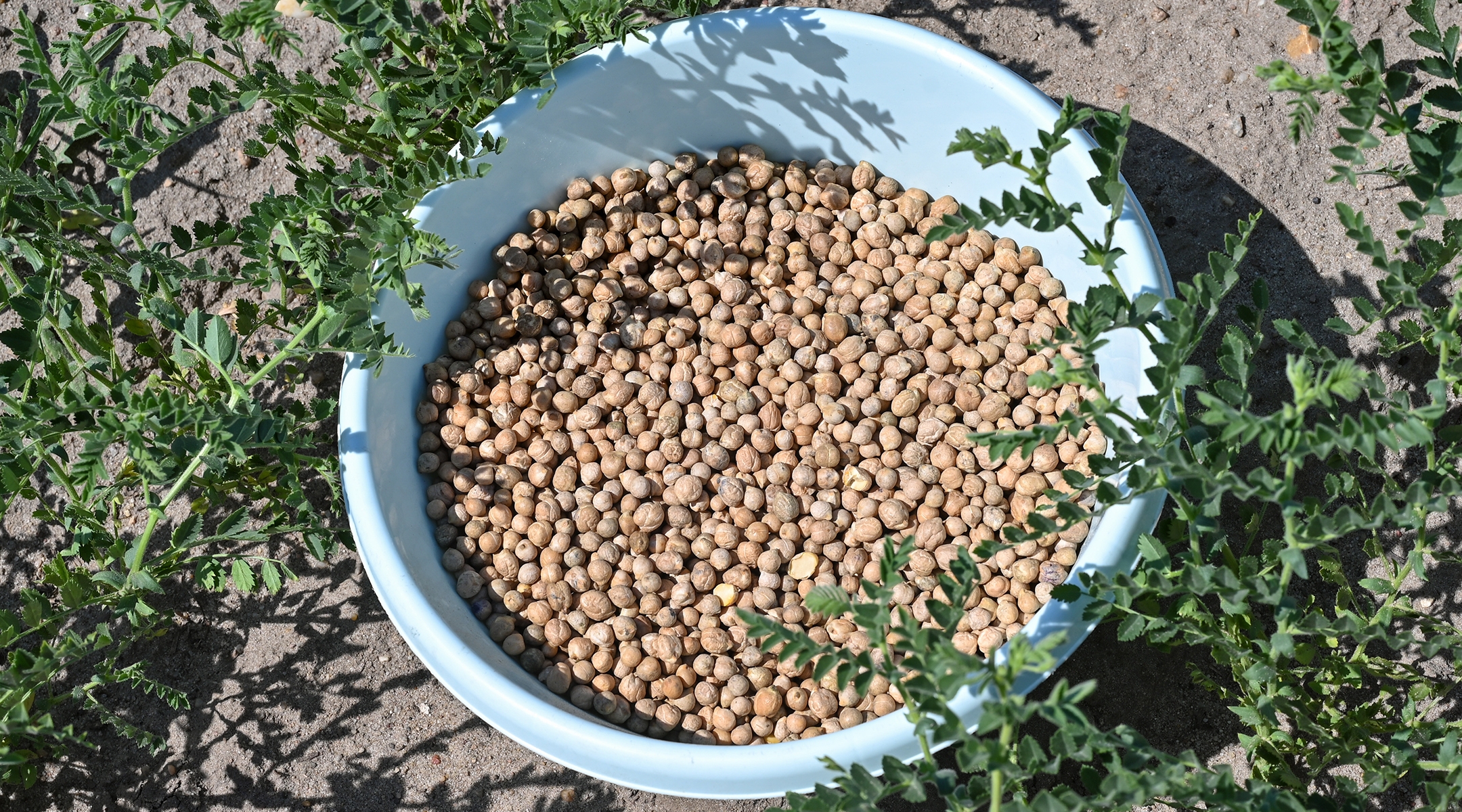Hold onto your hummus: Global chickpea supply could drop 20% this year
A combination of Russia’s war in Ukraine, poor weather and transportation issues is leading to the shortage.

Chickpeas are protein-packed staples in diets around the world. (Patrick Pleul/picture alliance via Getty Images)
(JTA) – Lovers of hummus and falafel beware: data shows that global supplies of chickpeas, the main ingredient for both dishes, may dip up to 20% this year.
A combination of Russia’s war in Ukraine, poor weather and transportation issues is leading to the shortage, which is predicted to increase prices and make cheap hummus harder to come by, Reuters reported on Thursday.
Farmers in the United States, the fourth-largest chickpea exporter in the world, planted less of the protein-packed legume this year due to less than ideal weather conditions in the spring.
Russia is also a top chickpea producer. Global sanctions have interrupted the country’s global chickpea exports, while the ongoing war has decreased the amount of chickpeas normally grown in Ukraine by about 50 tons, the head of a global chickpea trader and brokerage firm told Reuters.
Many communities around the world have depended on chickpeas, which are a staple of many Israeli dishes, as cheap sources of protein and fiber. Demand for hummus has skyrocketed in the United States over the past two decades.
According to NielsenIQ data, chickpea prices are already 17% higher than they were before the pandemic began.
This article originally appeared on JTA.org.
A message from our Publisher & CEO Rachel Fishman Feddersen

I hope you appreciated this article. Before you go, I’d like to ask you to please support the Forward’s award-winning, nonprofit journalism so that we can be prepared for whatever news 2025 brings.
At a time when other newsrooms are closing or cutting back, the Forward has removed its paywall and invested additional resources to report on the ground from Israel and around the U.S. on the impact of the war, rising antisemitism and polarized discourse.
Readers like you make it all possible. Support our work by becoming a Forward Member and connect with our journalism and your community.
— Rachel Fishman Feddersen, Publisher and CEO

























